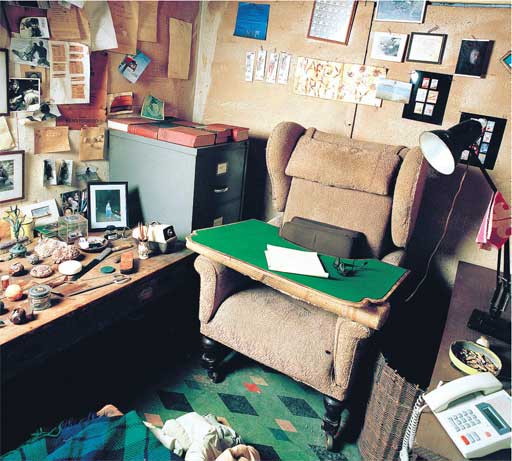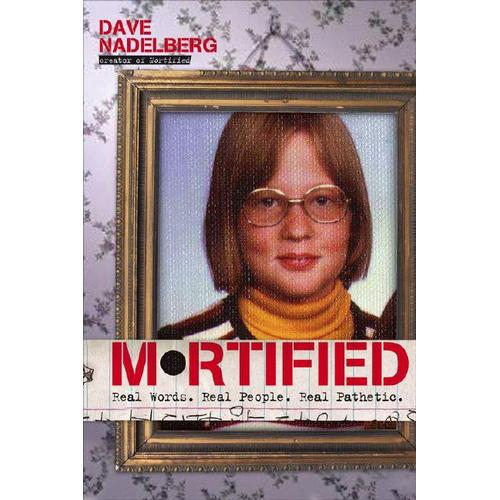A writing room is a wonderful thing. I don’t have one myself–my writing space doubles as my bedroom–but I like to imagine what it would look like if I did. The Guardian has a special section in Books called Writers’ Rooms, with snapshots of spaces from Roald Dahl’s (room pictured here) to Virginia Woolf’s to Jonathan Safran Foer’s. Included is commentary on the room, either directly from the writer or posthumously in several cases. I loved reading a writer’s impressions of how his/her room influences (or doesn’t) the writing, particularly Russell Hoban’s comment, “Here you see some of the clutter but you can’t see the danger.” Check it out if you have a bit of time to spare–perhaps you’ll find some inspiration for your own writing room/space/attic/basement/office/Panera.
All posts by Sarah Skerrett
Feel the need to get away?
Combine your best intentions for a nice vacation with something work-related! Below is a quick run-down of some upcoming writers conferences across the country.
Shop the Novel, Pitch the House: September 25-28 in NYC
What: The goal, in their own words, “is to set writers on a realistic path to publication by providing not only opportunity, but guidance on the novel from the best industry professionals in New York.”
Who: Acquisitions editors from major publishing houses such as Doubleday, Penguin, Random House, Viking, Berkeley, and more.
Where: Workshops take place at the Ripley Greer Studios on 520 Eighth Ave, 16th floor, near Madison Square Garden and Penn Station
Go if: You’re working in the genres of all types of commercial and literary fiction, serious and light women’s fiction, historical fiction, mystery/thriller and detective, high-concept young adult, as well as memoir and narrative nonfiction.
Site: Shop the Novel, Pitch the House
Backspace Writers Conference: August 7 & 8 in NYC
What: “Two-day, two-track program of workshops, panels and networking in the heart of the publishing world.”
Who: Keynote speakers, literary agents, authors, editors and other publishing professionals (for a complete list, refer to the site)
Where: The Radisson Martinique Hotel, 32nd and Broadway, in New York City
Go if: You want to take part in a newer conference with a solid reputation that presents a variety of industry topics in a well-organized two-day span.
Site: Backspace Writers Conference
Willamette Writers Conference: August 1-3 in Portland, OR
What: “Meet and exchange ideas with hundreds of other writers, to hone your craft, find expert advice, sell your work and get your creative juices flowing.” Now in its 39th year, with over 80 workshops to choose from. This year’s conference specifically focuses on making writing and marketing easier with the theme “Easy Writer.”
Who: Over 50 literary agents and editors on hand with 44 conference speakers and workshop leaders.
Where: Portland Airport Sheraton Hotel on Airport Way
Go if: You’re a writer in the Pacific Northwest, established or aspiring, seeking a creative environment and support system while attending informative workshops with a “by writers, for writers” feel.
This will make you want to find your diary
I was just introduced to David Nadelberg’s Mortified, based on his stage show of the same name, in which men and women take the spotlight to read aloud their own horrifically awkward adolescent diaries. The subtitle of this book says it all: Real Words. Real People. Real Pathetic. To say it’s only awkward is to skim the surface–the excerpts run the gamut from nightmare summer camp to drug addiction and sexual experimentation–but Nadelberg’s message that “we were all that same strange kid” rings true. Buy it at Amazon for $11.21 to read as a companion to your own diary. Read about the stage show in an NPR article or check out Mortified Nation to see a show near you or (gulp) participate. If my own teen diaries were not strictly meditations on Leonardo DiCaprio and acne, I might submit.
Know Your Rights: Copyright Quickie
Catherine’s post on Nolo inspired me to head over to their site to check out the specifics on copyrights, a long-evasive and confusing topic to me. Their coverage was excellent, especially for those (me) who get most of their exposure to law through five-hour marathons of Law & Order. I found their specific examples of “fair use” situations interesting, particularly because so many bloggers interpret this as loosely as an 11th grader’s saggy pants.
If you feel more comfortable navigating writer sites, Bob Brooke’s Writers’ Corner has a great section on copyrights (Know Your Rights–and boy am I glad he didn’t call it “Know Your Writes”–and All About Copyrights). Know Your Rights is a quick guide to types of copyrights with some lingo you may recognize, depending on the variety of your gigs, while All About Copyrights is more extensive coverage on what you as a writer need to know regarding copyrights. Brooke comments on fair use:
“Without the “fair use” doctrine no one would ever have his or her book reviewed. But “fair use” can be tricky. Quoting small amounts from a work have been held to be copyright infringement where the quoted matter was crucial to the work and the copying contributed to the decline in commercial value of the work. On the other hand, entire passages quoted from books have been held to be “fair use”. To be safe, ask permission from the author.”
And of course, without fair use, I wouldn’t have been able to quote Bob Brooke’s interesting point that without fair use, there would be no NY Times Review of Books, etc. Vicious circle.
Time-Wasting Internet Marketing
In the early stages of developing my new blog, I’ve been stumped for effective marketing techniques. Namely, anything that does NOT make me resort to posting comments on my “friends'” Facebook and MySpace pages, a la “Cammie, luuuuvvv ur site–read mine: [link to my site]”. First off, I find those tactics incredibly annoying. Furthermore, it seems to be a tremendous waste of time. And I was glad to find I’m not alone in that feeling.
On Rosalyn Gardner’s very in-the-know site (read: she’s spent ten years online, with her sites and blogs earning 100K a month), Net Profits Today, she recommends investing your time in a pay-per-click campaign rather than random forum or site comments for the sake of a few backlinks. The rewards are greater, she says, because the results are a targeted audience for your site, rather than random people–who may not even have any interest in what you do–culled from a social networking site.
Gardner posted in response to Caroline Middlebrook’s “Stats & Analysis for October ‘07? blog post on Darren Rowse’s ProBlogger, in which Middlebrook wrote that she logged 235 hours of work on her Web site and never saw any financial gain, despite 11,000 visitors to the site in its two-month infancy. That’s a hell of a lot of work to not be making any money. The kicker is Middlebrook had quit her full-time job to pursue “a living online.” I found Middleton’s story, as well as Gardner’s reaction to it, incredibly interesting but not because of the obvious.
I sympathized with Middlebrook (and my younger self) for putting so much time (with such risk at stake) with zero monetary reward. When I first started out as a blogger, I simply didn’t understand there was money to be made so I took pro bono job after pro bono job, thinking the clips and/or experience would be worth it. And I was always assured, “Well, after the site takes off, we hope to compensate you for your time.” Keywords naive Sarah didn’t pick up on were “after” and “hope.”
Of course, I received nothing. Only slightly higher rankings in Google, which I guess, is better than absolutely nothing. What’s worse though, is that I truly didn’t expect to find money in blogging. Had I read the vastly experienced Gardner’s suggestions prior to my entrance into blogworld, I wouldn’t have had to look back with a mixture of regret and embarrassment.
PC Maintenance Tips
As my laptop hums and moans at me daily, I’ve been scouring the internet for maintenance tips from a layperson’s perspective. I’m a a PC user (I do feel in the minority these days) and while I’d love a Macbook, my Dell will have to hold out for the time being. I’m trying to give it a mini-break by not banging away on the keyboard and opening seven Internet Explorer windows simulataneously.
I did find a great article on the site Daily Writing Tips, PC Vitals for Every Freelance Writer, that was a tremendous help. From the basics of hard drive maintenance and installing only the software you absolutely need, to the more detailed descriptions of warning signs and when (daily, weekly, monthly) to perform scans or backup, I found this informative and matter-of-fact. This coming from someone who prefers to shut my laptop down and not give it a further moment’s concern in regards to the thing’s health and maintenance. Which may be indirectly related to the frequency of my laptop crashes–at which time I think, whyyy are you doing this to me? I only take great care of you!–and with my livelihood almost entirely dependent on my computer, this causes some…neuroses. Now I have preventative (but uncomplicated) tips for (hopefully) avoiding any future crashes.


